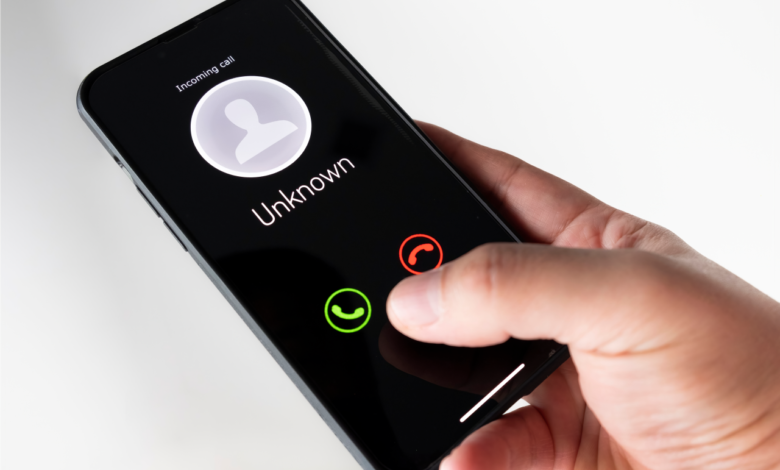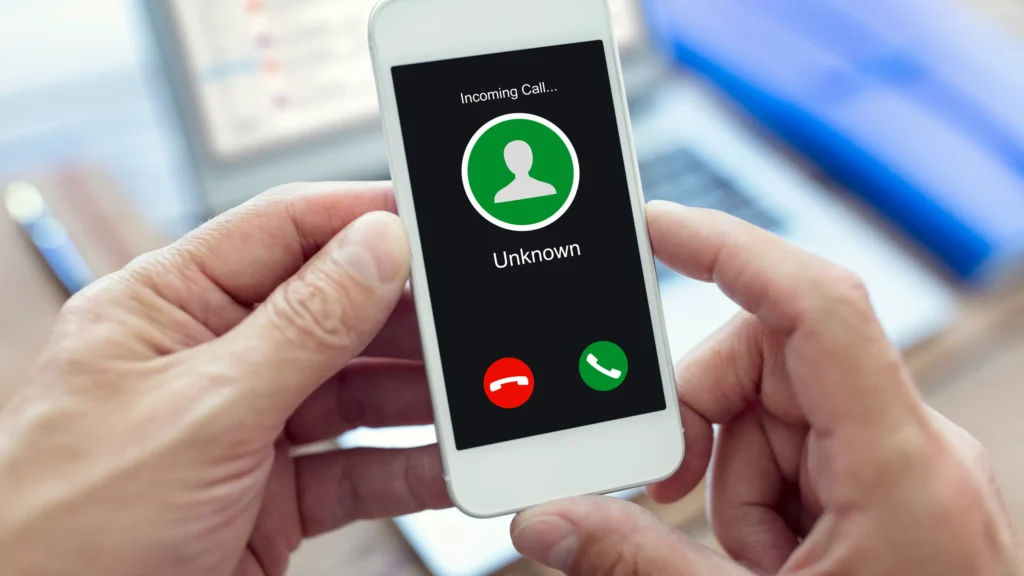02045996875 UK Scam Call: How to Protect Yourself

Have you ever received a call from a number you didn’t recognize, only to find out it was a scam? I know I have, and it’s a frustrating experience. One number that has been causing a lot of trouble lately is 02045996875. If you’ve seen this number pop up on your phone, you’re not alone. Many people across the UK have reported receiving calls from this number, and it’s become a known scam.
In this article, I want to share everything I’ve learned about the 02045996875 UK scam call. By understanding how these scammers operate, we can better protect ourselves and others.
We’ll dive into the tactics they use, how to spot a scam call, and what to do if you get one. Scam calls are more than just annoying—they can have serious consequences if we fall for them. So, let’s arm ourselves with the knowledge to stay safe. Join me as we explore the world of scam calls and learn how to fight back against these deceitful tactics.
What is the 02045996875 UK Scam Call?
The first four digits, 020, indicate a landline phone number originating from the London area code. This doesn’t necessarily mean the call comes directly from London, but it narrows down the geographical source. Unfortunately, beyond this basic information, pinpointing the exact origin or legitimacy of the number is challenging without advanced tools.
The 02045996875 UK scam call is a fraudulent phone call originating from the number 02045996875. This specific scam call has been reported by numerous individuals across the United Kingdom.
The primary aim of the scammers behind these calls is to deceive recipients into providing personal information, financial details, or direct payments under false pretenses. Understanding the nature of this scam call is crucial for protecting oneself from falling victim to such deceptive practices.
Description of the Scam Call
The 02045996875 scam call typically begins with a phone call from the number 02045996875. When the recipient answers the call, they might hear an automated message or a live person on the other end. The scam can take various forms, but it usually involves some form of urgency or threat to compel the recipient to take immediate action. Common scenarios include claims of unpaid taxes, outstanding debts, or fraudulent activity on the recipient’s bank account.
For instance, one prevalent tactic is for the caller to pose as an official from a government agency, such as HM Revenue and Customs (HMRC). The caller might claim that the recipient owes a significant amount of money in taxes and must pay immediately to avoid legal action. Alternatively, the caller could impersonate a bank representative, warning of suspicious activity on the recipient’s account and requesting verification of personal information to “secure” the account.
Common Patterns and Tactics Used by Scammers
Scammers using the 02045996875 number employ a variety of tactics to deceive their targets. These tactics are designed to create a sense of urgency and fear, making it more likely that the recipient will comply with their demands. Some of the common patterns and tactics include:
- Impersonation of Authority Figures: Scammers often pretend to be officials from trusted organizations, such as HMRC, banks, or law enforcement agencies. By doing so, they exploit the recipient’s trust in these institutions.
- Urgent Threats: The scam call usually involves some form of threat, such as legal action, arrest, or severe financial penalties. This urgency is intended to panic the recipient and prevent them from thinking critically about the situation.
- Request for Immediate Action: The caller typically demands immediate action, such as making a payment, providing personal information, or verifying account details. They may instruct the recipient to stay on the line or not to contact anyone else.
- Use of Technology: Some scammers use advanced technology to spoof the caller ID, making it appear as though the call is coming from a legitimate source. This can make it more challenging for the recipient to recognize the call as a scam.
- Repeated Calls: In some cases, scammers will call repeatedly, increasing the pressure on the recipient. This persistence can make the scam seem more credible and urgent.
Examples of Scam Call Scenarios
To better understand the 02045996875 UK scam call, consider a few real-life examples of how these scams might unfold:
- Tax Scam: A recipient receives a call from 02045996875, and the caller claims to be an HMRC officer. The caller states that the recipient owes several thousand pounds in back taxes and must pay immediately to avoid arrest. The recipient is instructed to provide their bank details to make the payment.
- Bank Fraud Alert: Another common scenario involves the caller posing as a bank representative. The caller informs the recipient that their bank account has been compromised and requests verification of account details to “secure” the account. The recipient is asked to provide their account number, PIN, and other sensitive information.
- Debt Collection: The scammer may pretend to be from a debt collection agency, claiming that the recipient has an outstanding debt that must be paid immediately. The caller threatens legal action if the debt is not settled and instructs the recipient to transfer money to a specific account.
How the 02045996875 UK Scam Call Operates
Understanding the operational mechanics of the 02045996875 UK scam call can help individuals recognize and avoid falling victim to such scams. This section delves into the specific methods used by scammers, including their initial contact strategies, the scripts they follow, and the psychological manipulation they employ to achieve their fraudulent objectives.
Detailed Breakdown of the Scam Process
The operation of the 02045996875 scam call typically follows a well-structured process designed to maximize the chances of success. Here’s a detailed breakdown of how these scams usually unfold:
- Initial Contact: The scam begins with a phone call from 02045996875. The initial contact might be an automated voice message or a live caller. If it is an automated call, the message usually instructs the recipient to press a button to speak with a representative or to call back on a given number.
- Establishing Credibility: Once contact is made, the scammer quickly works to establish credibility. This often involves impersonating a trusted authority figure, such as a government official, bank representative, or law enforcement officer. The caller may provide a fake name, employee ID number, and other details to seem legitimate.
- Creating Urgency: The next step is to create a sense of urgency. The caller might mention serious consequences, such as legal action, fines, or arrest, to instill fear and prompt immediate compliance. The goal is to prevent the recipient from taking time to think critically or seek advice.
- Information Extraction: The scammer then seeks to extract valuable information or money from the recipient. This could involve asking for personal information, such as social security numbers, bank account details, or credit card information. Alternatively, the scammer might instruct the recipient to make a payment via wire transfer, prepaid card, or other untraceable methods.
- Maintaining Control: Throughout the call, the scammer aims to maintain control of the conversation. They might instruct the recipient not to hang up, not to contact anyone else, or to stay on the line while they “process” the information. This control helps prevent the recipient from second-guessing the situation or seeking outside advice.
Methods of Contact
Scammers using the 02045996875 number employ various methods to reach their targets. The most common method is a direct phone call, but there are other ways they might attempt to make contact:
- Phone Calls: The primary method of contact is through direct phone calls. Scammers may use autodialers to reach a large number of potential victims quickly. These calls can be either automated messages or live callers.
- Voicemails: If the recipient does not answer the phone, scammers often leave voicemails. These messages typically contain urgent information and a call-back number. The message might state that it is urgent to return the call to resolve an issue.
- Text Messages: In some cases, scammers might send text messages from the 02045996875 number. These messages often contain similar urgent language and instructions to call back or click on a link for more information.
- Emails: Although less common, some scammers might use email to contact potential victims. These emails often mimic official communication from trusted institutions and include the 02045996875 number for the recipient to call.
Commonly Used Scripts or Messages by Scammers
The scripts and messages used by scammers are crafted to sound convincing and induce fear or urgency. Here are some common examples:
- HMRC Tax Scam Script: “This is an urgent call from HMRC. You have an outstanding tax bill of £2,000 that must be paid immediately. Failure to do so will result in legal action and possible arrest. Please press 1 to speak to a representative and resolve this issue now.”
- Bank Fraud Alert Script: “This is a call from [Bank Name] Fraud Department. We have detected suspicious activity on your account. To secure your account and prevent further fraudulent transactions, please provide your account details and verification code. Press 2 to speak with a security officer.”
- Debt Collection Script: “You are receiving this call because you have an outstanding debt of £500. This debt must be paid immediately to avoid further penalties and legal action. Please call us back at 02045996875 to settle your account.”
Psychological Manipulation
Scammers rely heavily on psychological manipulation to achieve their goals. Some of the key psychological tactics they use include:
- Fear and Anxiety: By threatening severe consequences such as arrest or financial penalties, scammers create a sense of fear and anxiety. This emotional state makes it harder for recipients to think clearly and rationally.
- Authority and Legitimacy: Impersonating authority figures, such as government officials or bank representatives, lends an air of legitimacy to the scam. People are more likely to comply with requests from perceived authority figures.
- Urgency and Pressure: Creating a sense of urgency forces recipients to act quickly without taking time to verify the information or seek advice. Scammers use time pressure to their advantage, reducing the chances of the recipient realizing the scam.
- Reciprocity: Sometimes, scammers might offer assistance or solutions to a fabricated problem. This creates a sense of indebtedness, making the recipient more likely to comply with subsequent requests.
By understanding how the 02045996875 UK scam call operates, individuals can better recognize these tactics and protect themselves from falling victim to such schemes. Being aware of the common methods of contact, the scripts used, and the psychological manipulation involved can help people stay vigilant and safeguard their personal information and finances.
Recognizing the Signs of a 02045996875 UK Scam Call
Recognizing the signs of a scam call from the number 02045996875 is essential for protecting yourself and your personal information. Scammers use a variety of tactics to deceive their targets, and being aware of these signs can help you identify and avoid falling victim to such fraudulent schemes.
Red Flags to Watch Out For
Several warning signs can indicate that a call from 02045996875 is a scam. By familiarizing yourself with these red flags, you can better protect yourself from potential scams. Here are some key indicators:
- Unsolicited Calls: Receiving an unexpected call from an unknown number is one of the first red flags. Legitimate organizations typically do not call individuals out of the blue, especially without prior communication.
- Urgent or Threatening Language: Scammers often use urgent or threatening language to create a sense of panic. Phrases like “immediate action required,” “your account will be closed,” or “you will be arrested” are designed to scare you into compliance.
- Requests for Personal Information: If the caller asks for sensitive personal information, such as your National Insurance number, bank account details, or passwords, this is a major red flag. Legitimate organizations will not ask for this information over the phone.
- Pressure to Act Quickly: Scammers often pressure you to act quickly, giving you little time to think or verify the legitimacy of the call. They might say that you need to make a payment or provide information immediately to avoid serious consequences.
- Suspicious Caller ID: Although scammers can spoof caller IDs to make it look like they are calling from a legitimate number, an unfamiliar or strange caller ID can be a warning sign. If the number seems suspicious, it’s best to proceed with caution.
- Requests for Untraceable Payments: Scammers may ask for payments through methods that are difficult to trace, such as wire transfers, prepaid cards, or cryptocurrencies. Legitimate organizations typically offer multiple, secure payment options and do not demand immediate, untraceable payments.
- Inconsistent Information: If the caller’s information is inconsistent or changes throughout the conversation, this is a red flag. Scammers might provide conflicting details to confuse you and make it harder for you to verify their legitimacy.
Techniques to Identify a Scam Call
Identifying a scam call from 02045996875 involves a combination of awareness and practical steps. Here are some techniques you can use to determine if a call is a scam:
- Verify the Caller: If you receive a call claiming to be from a legitimate organization, take steps to verify the caller’s identity. Hang up and call the organization directly using a known, official phone number. Do not use the number provided by the caller.
- Ask Questions: Ask the caller specific questions that a legitimate representative should be able to answer. For example, if the caller claims to be from your bank, ask for details about your account that only the bank would know.
- Check for Consistency: Pay attention to the caller’s information and check for consistency. Scammers often make mistakes or provide conflicting details. Any inconsistency should be treated as a warning sign.
- Look Up the Number: Search for the phone number online to see if others have reported it as a scam. There are numerous websites and forums where people share information about scam calls.
- Trust Your Instincts: If something feels off or too good to be true, trust your instincts. It’s better to be cautious and verify the call than to take unnecessary risks.
- Use Call Blocking: Consider using call-blocking apps or services that can help identify and block known scam numbers. These tools can provide an extra layer of protection against unwanted calls.
Real-Life Examples of Scam Call Experiences
Hearing about real-life experiences from people who have encountered the 02045996875 scam call can provide valuable insights into how these scams operate and how others have recognized and dealt with them. Here are a few examples:
- Sarah’s Story: Sarah received a call from 02045996875, with the caller claiming to be from HMRC. They told her she owed £3,000 in unpaid taxes and needed to pay immediately to avoid arrest. Sarah was initially scared but remembered reading about similar scams. She asked for the caller’s name and a reference number, then hung up and called HMRC directly using a number from their official website. HMRC confirmed it was a scam, and Sarah reported the incident.
- John’s Experience: John received a voicemail from 02045996875 stating that his bank account had been compromised. The message instructed him to call back immediately. John was suspicious because his bank had never contacted him this way before. He called his bank using the number on his bank statement, and they confirmed that there was no issue with his account. John realized it was a scam and did not return the call.
- Emma’s Encounter: Emma received a call from someone claiming to be from a debt collection agency, stating she had an outstanding debt of £500. The caller pressured her to make a payment immediately to avoid additional fees. Emma was unsure about the debt and asked for more information. The caller became agitated and refused to provide details. Emma hung up and checked her credit report, confirming she had no such debt. She reported the scam to the authorities.
Impact of 02045996875 UK Scam Calls on Victims
Scam calls from numbers like 02045996875 can have a profound impact on victims, affecting them emotionally, psychologically, and financially. Understanding these impacts can highlight the importance of awareness and prevention.
Emotional and Psychological Effects
Victims of scam calls often experience a range of emotional and psychological effects. These can include:
- Stress and Anxiety: The threatening and urgent nature of scam calls can cause significant stress and anxiety. Victims may worry about potential legal consequences, financial loss, or damage to their reputation.
- Fear and Paranoia: After receiving a scam call, victims might become fearful of answering the phone or trusting legitimate calls. This fear can lead to paranoia, where they constantly worry about being targeted again.
- Shame and Embarrassment: Many victims feel ashamed or embarrassed about falling for a scam. They might blame themselves for not recognizing the red flags or for providing personal information to the scammer.
- Loss of Trust: Experiencing a scam can erode trust in legitimate institutions and services. Victims might become skeptical of future communications from banks, government agencies, or other organizations.
Financial Consequences
The financial impact of scam calls can be devastating, particularly if victims provide sensitive information or make payments to the scammers. Financial consequences can include:
- Direct Financial Loss: Victims who make payments to scammers can lose significant amounts of money. This loss can be particularly harmful for individuals with limited financial resources.
- Identity Theft: Providing personal information to scammers can lead to identity theft, where the scammer uses the victim’s information to open accounts, take out loans, or make unauthorized transactions.
- Credit Damage: Identity theft can damage a victim’s credit score, making it difficult to obtain loans, mortgages, or credit cards in the future. Repairing credit damage can be a lengthy and challenging process.
- Legal and Financial Recovery Costs: Victims may incur costs related to legal fees or financial recovery services. These expenses can add to the overall financial burden caused by the scam.
Personal Stories from Victims
Personal stories from victims of the 02045996875 scam call can provide valuable insights into the real-life impact of these scams. Here are a few examples:
- Linda’s Ordeal: Linda received a call from 02045996875 claiming to be from her bank. The caller informed her that there was suspicious activity on her account and asked for her account number and PIN to verify her identity. Linda provided the information, only to find out later that her account had been drained of £2,000. She spent months working with her bank to recover the funds and had to monitor her accounts closely for further fraudulent activity.
- Mark’s Experience: Mark was targeted by a scammer claiming to be from HMRC. The caller threatened him with arrest for unpaid taxes and demanded immediate payment. Mark, fearing legal trouble, transferred £1,500 to the scammer’s account. It wasn’t until he spoke with his accountant that he realized he had been scammed. Mark reported the incident but was unable to recover his money.
- Sophie’s Story: Sophie received a call from 02045996875 claiming to be a debt collector. The caller pressured her to pay an outstanding debt she didn’t recognize. Sophie, feeling intimidated, made a payment of £500. She later discovered the debt was fictitious and reported the scam to the authorities. The experience left her feeling vulnerable and distrustful of future calls.
Preventive Measures Against 02045996875 UK Scam Calls

Taking preventive measures against scam calls from 02045996875 is crucial for safeguarding your personal information and financial security. By adopting proactive strategies, you can reduce the risk of falling victim to such scams.
Steps to Take When You Receive a Scam Call
If you receive a call from 02045996875 or any suspicious number, follow these steps to protect yourself:
- Do Not Engage: If you suspect a call is a scam, do not engage with the caller. Hang up immediately without providing any personal information or making any payments.
- Verify the Caller: If the caller claims to be from a legitimate organization, verify their identity by contacting the organization directly using a known, official phone number. Do not use any contact information provided by the caller.
- **Do Not Return the Call**: If you receive a voicemail or missed call from a suspicious number, do not return the call. Scammers often use these tactics to lure victims into a conversation.
- Report the Call: Report the scam call to relevant authorities, such as Action Fraud in the UK. Providing details about the call can help authorities track and combat scam operations.
- Document the Call: Keep a record of the call, including the date, time, caller’s number, and any information provided. This documentation can be useful for reporting the scam and protecting yourself in the future.
Tips for Protecting Personal Information
Protecting your personal information is key to preventing scam calls. Here are some tips to safeguard your information:
- Be Cautious with Sharing Information: Only share personal information with trusted sources. Be wary of unsolicited requests for sensitive information, whether over the phone, via email, or online.
- Use Strong Passwords: Use strong, unique passwords for your accounts and change them regularly. Avoid using easily guessable information, such as birthdays or common words.
- Enable Two-Factor Authentication: Enable two-factor authentication (2FA) for your online accounts. This adds an extra layer of security by requiring a second form of verification in addition to your password.
- Monitor Your Accounts: Regularly monitor your bank accounts, credit reports, and other financial statements for any unusual activity. Early detection of suspicious activity can help prevent further damage.
- Limit Personal Information Online: Be mindful of the personal information you share online, especially on social media. Scammers can use this information to target you more effectively.
Legal Actions and Reporting Mechanisms for 02045996875 UK Scam Calls
Taking legal action and reporting scam calls from 02045996875 is essential to combating these fraudulent activities. By understanding the legal framework and available reporting mechanisms, victims and potential targets can contribute to the broader effort of curbing scam operations and holding scammers accountable.
Understanding the Legal Framework
In the United Kingdom, various laws and regulations are designed to protect individuals from fraudulent activities, including scam calls. These legal frameworks provide the basis for taking action against scammers and seeking recourse for victims.
- Fraud Act 2006: The Fraud Act 2006 is one of the primary pieces of legislation addressing fraud in the UK. It defines fraud as a criminal offense and outlines various types of fraudulent behavior, including false representation and failing to disclose information. Scam calls that deceive individuals for financial gain fall under this act, making them prosecutable offenses.
- Data Protection Act 2018: This act regulates how personal data is used and protected. Scammers often violate this act by unlawfully obtaining and using personal information. Victims can report such breaches, and regulatory bodies can take action against offenders.
- Consumer Protection from Unfair Trading Regulations 2008: These regulations protect consumers from unfair or misleading commercial practices. Scam calls that deceive or mislead individuals about services or payments can be prosecuted under these regulations.
- Telecommunications Act 1984: This act includes provisions for the regulation of telecommunications services and the prevention of misuse. Scam calls can be considered a misuse of telecommunications services, providing another legal avenue for action against scammers.
Steps to Take Legal Action
Victims of scam calls can take several steps to pursue legal action against the perpetrators. Here is a step-by-step guide:
- Gather Evidence: Collect as much evidence as possible about the scam call. This includes call logs, recordings, voicemails, screenshots, and any correspondence with the scammer. Detailed records will strengthen your case.
- Report to Authorities: Report the scam call to relevant authorities such as Action Fraud, the UK’s national fraud and cybercrime reporting center. Providing detailed information about the call and the scammer can help authorities investigate and take action.
- Contact the Financial Ombudsman Service: If the scam involves financial transactions, contact the Financial Ombudsman Service for advice and assistance. They can help mediate disputes and provide guidance on recovering lost funds.
- Consult a Legal Advisor: Seek advice from a legal professional who specializes in fraud and consumer protection. They can guide you through the process of taking legal action, including filing a police report and pursuing a case in court.
- File a Police Report: Report the scam to your local police. While the police may not always be able to recover lost funds, filing a report is important for documentation and potential future actions against the scammer.
Reporting Mechanisms and Resources
There are various mechanisms and resources available for reporting scam calls from 02045996875. Utilizing these resources can help prevent further scams and assist in the apprehension of scammers.
- Action Fraud: As the national reporting center for fraud and cybercrime in the UK, Action Fraud collects reports of scam calls and works with law enforcement agencies to investigate and combat fraud. Reports can be made online or by phone.
- Financial Conduct Authority (FCA): The FCA regulates financial services and takes action against financial scams. Reporting a scam call to the FCA can help them monitor and address fraudulent activities in the financial sector.
- Information Commissioner’s Office (ICO): The ICO oversees data protection and privacy laws in the UK. If a scam call involves misuse of personal data, report it to the ICO for further investigation and action.
- Citizens Advice: Citizens Advice provides guidance and support for individuals dealing with scam calls. They can offer advice on how to report the scam, protect your information, and seek redress.
- Telephone Preference Service (TPS): Registering with the TPS can reduce unwanted marketing calls. While it may not stop all scam calls, it can help reduce the overall volume of unsolicited calls.
- Your Bank or Financial Institution: If the scam call involves your bank account or financial transactions, report it to your bank immediately. They can take steps to secure your account and assist in recovering lost funds.
International Cooperation in Combating Scam Calls
Scam calls are often part of international operations, making cooperation between countries crucial for effective enforcement. The UK collaborates with international agencies to track and combat scam calls.
- Europol and Interpol: These agencies facilitate international cooperation in addressing cross-border fraud and cybercrime. The UK works with Europol and Interpol to share information, track scammers, and coordinate enforcement actions.
- Bilateral Agreements: The UK has bilateral agreements with various countries to combat fraud and cybercrime. These agreements enable the exchange of information and joint investigations, enhancing the ability to tackle international scam operations.
- International Reporting Platforms: Platforms like the Global Anti-Scam Alliance (GASA) allow countries to share information about scam calls and collaborate on prevention and enforcement efforts.
Educating the Public About 02045996875 UK Scam Calls
Education is a critical component in the fight against scam calls from 02045996875. By raising public awareness and providing information on how to recognize, avoid, and report these scams, individuals can protect themselves and contribute to broader prevention efforts.
Public awareness campaigns play a vital role in educating people about scam calls. These campaigns can be conducted through various channels, including social media, television, radio, and print media.
- Government Initiatives: Government agencies, such as the National Crime Agency (NCA) and Action Fraud, often run public awareness campaigns. These campaigns provide information on common scam tactics, warning signs, and steps to take if you receive a scam call.
- Media Coverage: Media outlets frequently cover stories about scam calls, highlighting specific cases and providing tips for protection. News articles, TV segments, and radio shows can reach a broad audience and raise awareness.
- Social Media Campaigns: Social media platforms are effective tools for spreading awareness about scam calls. Government agencies, non-profits, and consumer protection organizations use social media to share information, warnings, and advice on how to handle scam calls.
- Educational Workshops and Seminars: Community organizations and consumer protection groups often hold workshops and seminars to educate the public about scam calls. These events provide detailed information and practical tips for recognizing and avoiding scams.





